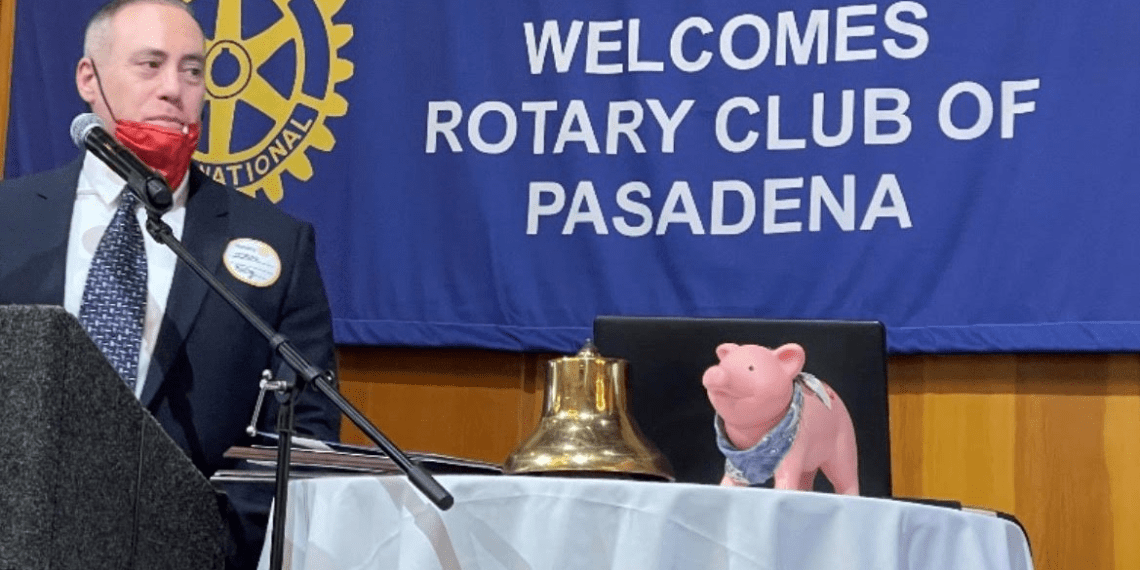Philanthropist Ian Mitchell King Los Angeles has long been a proud member of Rotary, an international charity that organizes a range of projects to help the less fortunate. He explains what sets the Rotary apart from other non-profit organizations and offers guidance on how to become a member.
First, Ian Mitchell King notes it is important for individuals to realize what sets Rotary apart from other non-profit clubs or organizations. Many non-profits have a board of directors who organize programs and set goals for the organization. Members and volunteers join programs and are told what needs to be done to reach the objective, and they help out as they are able. However, Rotary requires club members are the planners, organizers, and executors for the different projects the club takes on. Each member assesses his or her skills, experience, resources, and passions to determine the best ways to provide assistance in the community. They then talk with others in the club and build connections with people who can help make the project a reality. Furthermore, Rotary club members connect with community leaders to gain input and practical help with projects. Once a project is organized, Rotary members are encouraged to include their families in project completion if possible. Spouses, siblings, parents, and others are welcome to give their time and expertise to help the community, even if they are not Rotary members.
Ian Mitchell King Los Angeles explains that anyone wanting to become a Rotary member must get in touch with a local Rotary club via email. The club will likely respond with an invitation to attend a Rotary meeting. It is free to do so, and there is no obligation to join the club even after one attends the meeting. Those who attend the first meeting and still want to join will likely be invited back for more meetings and subsequently given a membership application to complete. An aspiring club member will also need a current Rotarian to submit his or her name to the club’s membership committee, so it is important for an aspiring Rotarian who doesn’t know any current Rotary club members to get to know a few while attending club meetings. The club’s membership committee will review applications and grant or deny membership.
There are not many requirements for aspiring Rotary members, Ian Mitchell King points out. Rotary accepts young adults, middle-aged adults, and even elderly individuals. Those with a job, retirees, and even those currently out of work are welcome. People of all ages, ethnic backgrounds, religions, and genders can join in fact, local clubs welcome diversity as it enables them to better understand and serve local communities. The only prerequisites are a desire to serve the local community, a willingness to network and make friends, and the ability to attend club meetings and participate in community projects. Club members also need to live in the same area as their club, as all projects are organized locally to serve those who live in that area. If Rotarians move, they need to apply for membership in their new club, as membership is not transferrable. However, one can retain his or her Rotary membership history by keeping the number originally assigned by the first club he or she joined.
Ian Mitchell King Los Angeles has many years of experience working with his local Rotary club to provide needed goods and services to the less fortunate. He works with the homeless, has served as an ambassador for the Rose Parade, provided hurricane relief services, and helped with Camp Pendleton’s annual clothes and toy drives. His passion for caring for the needy is contagious. He continually encourages those with the time, skills, and desire to improve their local communities to join the Rotary to network with other dedicated individuals to bring about positive change. At the same time, Ian Mitchell King points out individuals have much to gain by joining a local Rotary club. Rotary gives individuals the opportunity to network and build friendships with like-minded individuals and community leaders. It enables a person to improve professional skills such as communication skills, speaking skills, project organization and management, fundraising, etc. An individual can even learn new skills from those he or she works with, and a Rotary membership is a great addition to any professional resume. While it takes time, effort, and even some personal sacrifices to work with Rotary, the payoff is more than worth it in the long run.

